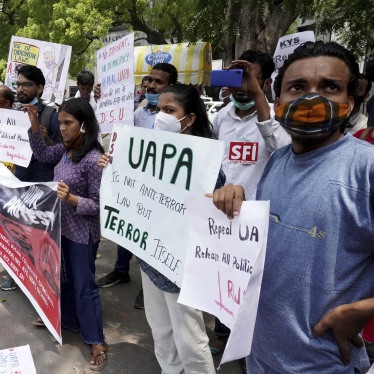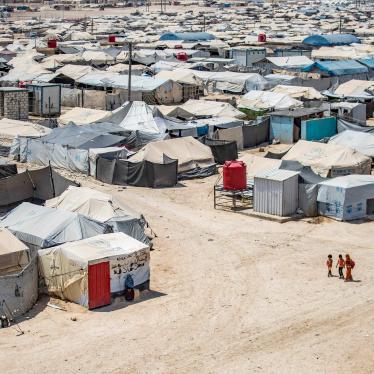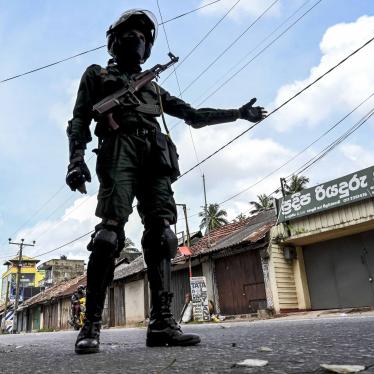(New York) - The Philippines government should stop blacklisting peaceful critics and banning them from entering the country, Human Rights Watch said today.
Human Rights Watch has obtained a copy of a Philippines government blacklist banning 504 people from entering the country in July and August with, according to the document, “Al-Qaeda/Taliban Link.” The Bureau of Immigration of the Philippines Justice Department blacklist includes individuals from more than 50 countries, including expatriate Filipinos. The blacklist includes individuals from US-based organizations such as Church World Service, the Methodist Church General Board of Church and Society, the National Lawyers Guild, and the Center for Constitutional Rights. It also includes individuals working for the International Labor Solidarity Mission, and from Philippine unions and civil society organizations such as Bayan and Gabriela/Gabnet. Please contact Human Rights Watch to view the blacklist.
The blacklist went into effect on July 24 and was apparently lifted on August 10. According to a Philippines foreign ministry official, the list was put in place at the time of the Association of Southeast Asian Nations (ASEAN) ministerial meeting held in Manila from July 21 to August 2. Since the government did not publicly announce the blacklist, it is not clear whether this or any other blacklist is in effect at present. The blacklist was attached to a letter to an attorney requesting the removal of a client’s name from the blacklist.
“The Philippine government has the right and duty to protect its citizens from genuine security threats,” said Sophie Richardson, Asia advocacy director at Human Rights Watch. “But labeling peaceful critics as Al-Qaeda or Taliban only serves to sap public confidence in counter-terror measures and exposes them as a cover for suppressing dissent.”
Some of those named had visited the Philippines to help victims of human rights violations committed by the Philippine armed forces. Ramsey Clark, one of those blacklisted, is a former US attorney general. Human Rights Watch does not know if any of the 504 people on the list include individuals known to be on international criminal watch lists.
Philippines government blacklists burst into public view in December when Brian Campbell, an American lawyer for the International Labor Rights Fund, was denied entry into the Philippines. A Philippines Foreign Affairs Department official told Human Rights Watch that the blacklist had existed only at the time of the ASEAN meetings in late 2006 and early 2007, and that it was no longer in effect. He also explained the blacklist was put together in conjunction with other countries’ security agencies, and that those on the list were thought to be national security threats. Why Campbell was deemed to be a security threat has never been explained.
“The government’s blacklisting of its critics is shocking in a country that prides itself on being a democracy that values free speech,” said Richardson. “Many people on this blacklist have done little more than criticize the government or work to protect Filipinos from the country’s abusive security forces.”
The blacklists have been put into effect at a time when the government has been under increasing domestic and international pressure over large numbers of extrajudicial killings of government critics and activists. Human Rights Watch has recently documented how domestic critics of the Philippines government have been treated, including in the June report, “Scared Silent: Impunity for Extrajudicial Killings in the Philippines” https://www.hrw.org/reports/2007/philippines0607/). Human rights activists continue to tell Human Rights Watch of killings, abductions and threats, allegedly at the hands of the security forces.
Human Rights Watch called on Philippines President Gloria Arroyo and her government to clarify whether any blacklists are now in effect and to make a commitment to end bans on nonviolent government critics.
“While President Arroyo has made numerous public announcements welcoming international assistance in investigating unsolved killings in the Philippines, her government’s banning of peaceful critics makes a mockery of this,” said Richardson. “The government’s blacklist and its failure to prosecute members of the security forces for human rights abuses makes it seem more interested in silencing its critics than in ensuring justice.”








